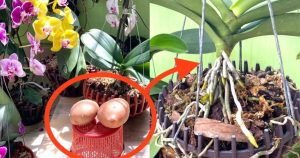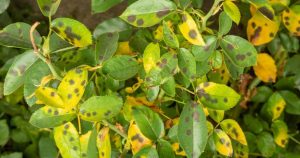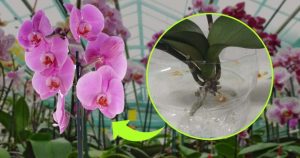Nurserymen use a very effective method to keep midges away from plant nurseries. Let’s see what method it is.

Gardeners often find themselves irritated by the presence of midges . These persistent insects are particularly attracted to plants and can inflict considerable damage on them if not dealt with promptly.
Luckily, there is a great way to deter fruit flies from invading your beloved plants.
In this article, we will discover this method and offer some practical tips to successfully deal with this annoying problem.
To start, it’s critical to understand the reasons why midges show an affinity for plants.
These tiny insects feed on plant sap , decayed organic material, and pollen.
If there are organic residues present or if the soil is rich in nutrients, plants can serve as an optimal source of sustenance for midges.
Additionally, midges are attracted to heat and lighting sources . Therefore, a bright and heated environment can intensify their presence near the plants.
Here’s an amazing trick that uses a natural and easily obtainable product: apple cider vinegar.
This versatile substance has many benefits for plants and can also act as an effective repellent for midges.
Thanks to its powerful scent , it successfully deters insects, effectively protecting plants from their damage.
Use apple cider vinegar as a mosquito repellent
If you’re looking for a natural solution to keep fruit flies off your plants, apple cider vinegar can be a helpful tool. Here’s how to use it.
To make a dilute apple cider vinegar solution, simply mix one serving of vinegar with two servings of water .
Next, use a small sprayer or misting device to administer the solution to your plants.
To eradicate gnats from plants, apply the solution in a light mist to leaves, flowers and the soil around them. Make sure all affected areas are completely covered.

To maintain a persistent repulsion barrier , it is recommended to apply the repellent every two to three days or whenever midges are detected in the vicinity of plants.
It should be noted that excessive concentrations of apple cider vinegar can be harmful to plants.
Consequently, it is imperative that you dilute the solution correctly to prevent any problems. Additionally, soil pH levels can be altered by the use of apple cider vinegar, which is why it should only be applied sparingly and when necessary.
Other measures to keep midges away from plants
In addition to incorporating apple cider vinegar, there are many other measures you can take to prevent fruit flies from infesting your plants.
To ensure that the soil remains healthy, maintaining adequate drainage is essential . Gnats prefer moist soil, so it is important to ensure adequate drainage to prevent waterlogging and provide optimal growing conditions.
To minimize the chance of a midge infestation, it is important to remove any organic waste or decaying vegetation that could serve as bait .
Maintaining a tidy and well-maintained garden is an effective way to achieve this and prevent such an occurrence.
By using plants that have natural repellent properties , you can repel midges. Some plants, including but not limited to lavender , mint, and lemongrass, emit fragrances that are particularly unpleasant to these pests.

Planting them in close proximity to affected plants can effectively deter midges from the area.
You can use protective nets or fabrics. Covering plants with fine mesh fabrics or fabrics can prevent midges from gaining access, preventing them from damaging the plants .
You also need to pay attention to the lighting . Avoid placing bright lights too close to plants at night, as they may attract insects.
By following these tips and using apple cider vinegar as a natural repellent, you can safely and effectively repel gnats from all your plants.
Remember to apply treatment and prevention measures consistently, because perseverance is the secret to achieving lasting results.
Don’t let these annoying insects ruin your garden – you need to act now and take back control!






